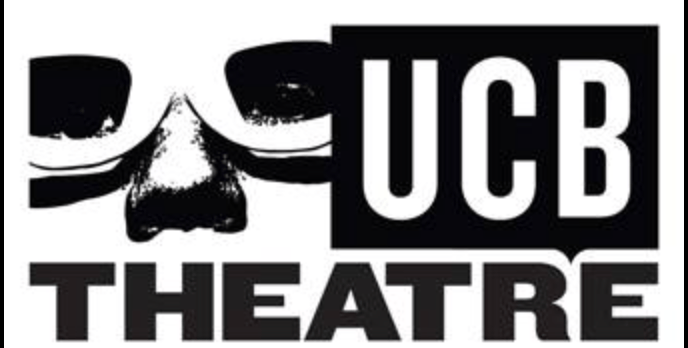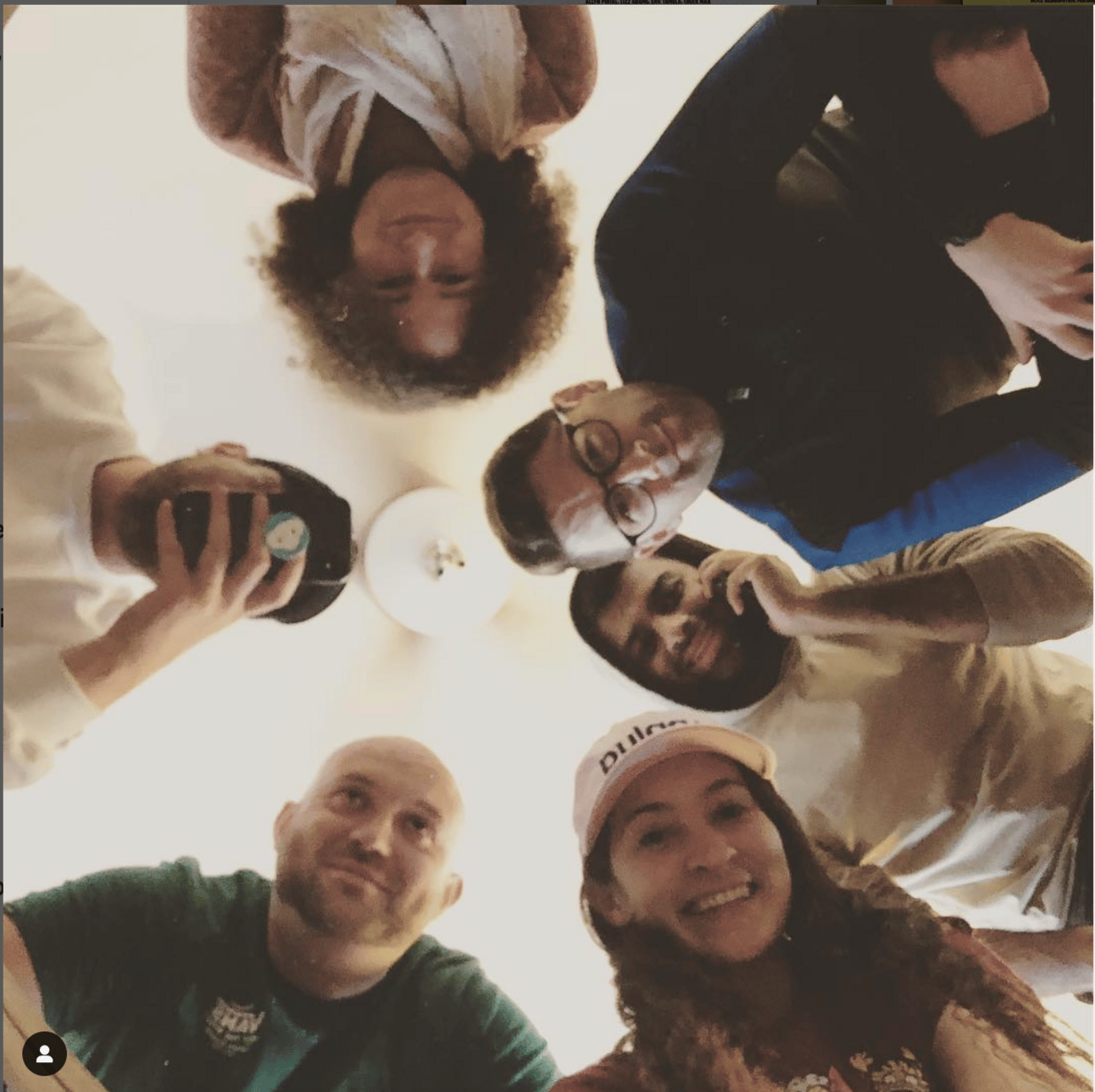Take The Note, Working with Editors

UCB THEATRE LOGO. Copright Jimmy Miller and Elysian Park (I think)
Back in 2015 when I moved out to LA to be a full-time assistant editor for DC Comics I knew that I needed to find a new creative outlet to do in my free time that wasn’t writing (particularly writing comics). I also needed to meet some people my age who I didn’t work with. Some of my closest friends were and are still the people I met when I first started working at DC, but I knew I needed to meet more people. To deal with both of these needs I decided to sign up and take improvisation classes at the Los Angeles branch of the Upright Citizen’s Brigade Theatre (Which I’m just going to refer to as UCB for the rest of this Newsletter). I have always loved comedy, and so many of my heroes are great comedians with improv backgrounds. I also had an itch to perform. Now that I was in LA, with all of that in mind, I figured why not give improv classes a shot.
My gambit was successful. I took the first four levels of improv classes at UCB, and with every class, I made more friends and found a new creative outlet that was rewarding. Eventually, alongside a group of people, I took those improv classes we formed an improv group called Spring Break ‘08 and we did independent comedy shows all around LA for a number of years. They are some of the best memories of my adult life.

Spring Break ‘08, some of the best friends I ever had.
To make sure we were getting better at improv, outside of doing classes, and performing we worked with a great improv coach and writer named Matthew Brian Cohen. We had heard other improv groups tended to work with a variety of coaches but we fell in love with Matt pretty instantly and during our years as a team I can count on one hand the times we worked with a different coach. Matt was funny, patient, willing to experiment, and most importantly he was very direct without ever being unkind. He was matter-of-fact, but there was always a comforting tone of “Trust me, give it a shot the way I’m recommending and it might work.”
I would do a scene or play a character that wasn’t working, and it felt awful. To date creatively, nothing feels worse than trying to be funny and having it not work. And it brought out my worst insecurities. That I’m not a genius, that my first instinct isn’t always a massive success which makes me a fraud, and often instead of just listening to criticism and trying something a different way, I would spend my energy kicking myself. Matt helped me break out of that bad behavior and made me better at taking notes. He would give me recommendations and tips on how to perform improv better and I would hear the notes work in real time. I got laughs what from what I was doing instead of silence. The laughter erased the bad feelings from the bad version of a scene I had done. I developed a lot of trust in Matt and it led me to try trusting other people when they gave me notes and criticism. I owe him a lot for that.
Learning to take notes and feedback has been life-changing for me. I crave notes now. Especially when I work with someone like Matt, or on the comic side I work with fantastic editors. And this year especially…I have only worked with great editors.
I am writing this week’s Newsletter because I was thinking recently that one of the things I am most proud of in the last decade of my life is that I have gotten better at taking notes, something that I once thought was impossible, and I guarantee a lot of people who knew me thought was impossible too. I hope that talking about this and some of the ways I felt about criticism will help young creative people who are similar to me. Once you push this boulder out of your way, a lot of light and oxygen is going to flow through your creative cave and make your life a lot better.
Why do some of us not want to take criticism? Why do we fear it? Well, I think a big thing is that as creative types we spend a lot of time worshipping the idea of geniuses. People who were always fully formed creatively never needed anyone’s help along the way, and everything that ever came out of their heads was gold. If I need criticism or notes, I’m not a genius. I’m not talented. I shouldn’t be doing this.
All of that is Grade-A bullshit.
First of all…as creative people…I know that all of us spend a lot of our time thinking about things we wish we had said or done at dramatically significant parts of our life. The fact that we are those people, but don’t take that same mindset into our writing where we actually CAN revise a scene or story until it’s near-perfect for our characters is absurd.
Second of all, and this is one of the most important things I am going to tell you. Most of us are not geniuses. And that’s okay because a lot of geniuses never get out of their way and make something worth a damn. Most of the people you love, that I love? The people we should all aspire to be? They’re people who kept working on their craft even when they were terrible. ESPECIALLY when they were terrible. The incredibly disciplined workers and craftspeople. They listened to the advice of creative people in their lives that they trusted and listened to creative people they admired who told the truth about their origins.
The creative people that talk about their failures and how many steps they had to climb to get to where they are today. How there were always people along the way who helped them by giving them great feedback that unlocked more of their pure voice and unblocked so many doubts and fears they were having about making art. THOSE are the role models we need.
Now how does this relate to editors? Well…comic editors get a bad wrap on a whole I think. Don’t get me wrong, there have been bad editors. Every profession has people who shouldn’t be doing it. But just as true and worth considering…not every editor and every creator are going to get along. Just like how there are great pairings of writers and artists, or actors and directors in the case of film, the same is true for editors and creators in comics.
When I was an editor there were creators I adored working with, and then I would have an editorial colleague I knew was great work with that same creator and they didn’t hit it off. Likewise the same was true for me, I would hear someone was awesome and liked their work, but then we got on a project together and didn’t have a spark. Both things can be true. There can be bad editors and there can be people who just don’t hit it off, who don’t understand each other, and just don’t vibe.
But when you do find that right editor? The one who is the best editor for you? The ones who I believe currently make up the majority of the profession? They are worth their weight in GOLD. They make you and your creative projects richer for their presence and their value only increases over time, no matter what level of your career you are at. It was something I saw a lot firsthand, the people I had the most respect for as creators also ended up being the ones who most often would ask “What do you think?” to the editors they worked with, and believed that the best idea could come from anyone on a team. People who have won awards, written successful movies, TV shows, novels, and sold millions of comics, remained open to feedback throughout their careers. I decided that was the type of writer I always wanted to strive to be.
This year I have worked with eight different comic book editors and one project manager on a non-comic project. And all nine of those people? Gave me feedback that made the projects I was working on better. And at best gave me advice that I am going to carry with me on the next projects I do. If I didn’t learn to trust people and take notes, that wouldn’t have happened.
“So when you get notes you never get your feelings hurt?”
No, I didn’t say that. I’m still a person with an ego who wants to get things as close to great on the first outing. However, when I get notes, I allow myself a few minutes to play my little violin and make peace with the fact that I didn’t get everything right on my first try. Then I just start taking the notes, and I take joy in taking the notes and feeling the script improve as I make them. That feeling lasts and the guilt over not being perfect fades.
Needing notes does not make you a bad creator. It also doesn’t mean that you made some unfixable mistakes that are going to make you not worth hiring in the future. It makes you human. We all need notes. Also, that’s an editor’s job, to look at a piece of work and give feedback that is going to make it better. On occasion will you see a note given for the sake of giving a note? Probably. But again…the great notes that help you get closer to what your intention was, or help you get on to a more clear track, are the notes that are going to stick with you and make you better in the long term.
I am going to try to write more things like this in between the promotion of upcoming projects. Just write about feelings I have about working and how I think I have and can continue to improve in different areas. It feels good to do, and I hope it reads well, or at least it’s entertaining.

I KNOW WHAT YOU DID LAST CRISIS Main Cover by Dan Hipp. Copyright DC Comics.
Next week I am going to be running an interview I did with writer Rachel Pinnelas. Like me, Rachel contributed a story to the upcoming I KNOW WHAT YOU DID LAST CRISIS anthology that comes out from DC Comics on 10/2/24. Her story was set during the event that came out the year after Final Crisis, the epic Blackest Night storyline. It’s going to be a blast!
Stay Safe!
—Dave Wielgosz
